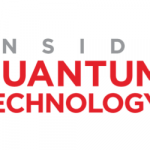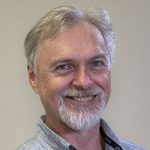Quantum News Briefs September 26: Cheng: The Path to PQC Migration; Biden Administration’s newest sanctions on Russia and Belarus include a ban on quantum computing; Pritzker Molecular Engineering professors David Awschalom and Liang Jiang awarded $1 million for development of South Korea-U.S. quantum center; & MORE
By
Sandra Helsel posted 26 Sep 2022
Quantum News Briefs September 26 opens with Andersen Cheng’s recent editorial :The Path to PQC Migration” followed by news of the Biden Administration’s newest sanctions on Russia and Belarus that include a ban on quantum computing. Third is Pritzker Molecular Engineering professors David Awschalom and Liang Jiang award of $1 million for development of South Korea-U.S. quantum center; & MORE.
Cheng: The Path to PQC Migration
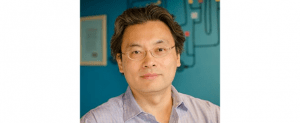 Andersen Cheng was a September 24 guest contributor to VentureBeat and discussed the path to PQC adoption in his article. Quantum News Briefs summarizes his article below. NOTE: Andersen Cheng will be the opening Keynote speaker at the upcoming IQT Quantum Cybersecurity Conference in NYC October 25-27.
Andersen Cheng was a September 24 guest contributor to VentureBeat and discussed the path to PQC adoption in his article. Quantum News Briefs summarizes his article below. NOTE: Andersen Cheng will be the opening Keynote speaker at the upcoming IQT Quantum Cybersecurity Conference in NYC October 25-27.
Diamond Sponsor Keynote: NIST’s Cat Is Now Out Of The Box, How Do We Start The Quantum Migration?
Andersen Cheng – CEO, Post-Quantum; October 25, at 9:1o AM PST.
It is widely accepted that a sufficiently mature quantum computer will be able to break today’s public-key encryption (PKC) standards — RSA and Elliptic Curve.
So, what are the implications? Put simply, without secure encryption, the digital economy would cease to function, as PKC is used everywhere in our daily digital interactions. With a mature quantum computer, a hacker could:
- Empty people’s bank accounts or cryptocurrency wallets
- Intercept and decrypt sensitive communications
- Disable critical infrastructure like power grids and communications networks
- Expose virtually any secret we wish to keep secret
The timing here is still much debated, but many predictions mistakenly focus on commercial quantum computers being up to 15-20 years away. The threat that I am referring to is not a commercial quantum computer that JP Morgan can buy to do its own trading analysis. I’m talking about the sheer power to do code-breaking under lab conditions, which will come far sooner. The community estimates this could occur in as few as five years.
Even if we can’t predict the exact moment a functioning quantum machine proliferates, billions of dollars are being poured into quantum computing R&D, meaning it’s really only a matter of time until the encryption relied on by virtually every application in use today can be cracked. Further, even if the first quantum computer isn’t seen until 2030, we are still in a race against time to stay secure. It’s estimated that it would take at least 10 years to migrate the existing cryptographic infrastructure, because that entails transforming most electronic devices that connect to the internet.
Adding to this threat is the possibility that, even today, organizations with sensitive data that has a long shelf life could see that data being harvested and captured by criminals intending to decrypt it once a sufficiently powerful quantum computer arrives. Any data with a multi-year lifespan could be collected today and decrypted in the future. This could include government secrets, R&D innovation, trading data in financial services, and strategic plans.
These are the big timeline questions for security and quantum computing experts, who are still at odds over whether we’ve got 5, 10, or 15 years before the quantum effect impacts encryption. Perhaps the better thought process is to stop thinking about it as a definitive date the industry times for, and instead think about relative risk over time. This is an idea put forward by Dr. Michele Mosca, co-founder and CEO of Evolution Inc, and co-author of a report earlier this year that details that line of thinking. Click here to read Cheng’s extensive editorial.
*****
Biden Administration’s newest sanctions on Russia and Belarus include a ban on quantum computing
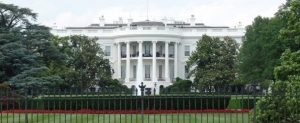 Greta Lichtenbaum and David J. Ribner of O’Melveny discuss the United States further expansion of economic sanctions and export controls on Russia and Belarus in a recent article. Their discussion focused on quantum computing; Quantum News Briefs summarizes below
Greta Lichtenbaum and David J. Ribner of O’Melveny discuss the United States further expansion of economic sanctions and export controls on Russia and Belarus in a recent article. Their discussion focused on quantum computing; Quantum News Briefs summarizes below
The Biden Administration’s newest round of sanctions includes actions by the Commerce, State, and Treasury Departments to prohibit dealings with Russian defense entities and technology firms supporting Russia’s defense industrial base, a ban on the provision of services related to quantum computing, and expanded restrictions on U.S.-origin commercial and industrial goods for export to both Russia and Belarus.
Most notably, the new round expands the scope of the ban on providing certain services to Russia to include a ban on quantum computing services. The U.S. Department of the Treasury’s Office of Foreign Assets Control (“OFAC”) issued a determination pursuant to E.O. 14071 identifying quantum computing services as subject to the E.O.’s prohibitions (“Services”). As a result, beginning on October 15, 2022, “the exportation, reexportation, sale, or supply, directly or indirectly, from the United States, or by a United States person, wherever located, of quantum computing services to any person located in the Russian Federation” will be prohibited.
OFAC guidance defines Services to include the following related to quantum computing:
- infrastructure, web hosting, or data processing services; custom computer programming services; computer systems integration design services; computer systems and data processing facilities management services; computing infrastructure, data processing services, web hosting services, and related services; repairing computer, computer peripherals, or communication equipment; other computer-related services; as well as services related to the exportation, reexportation, sale, or supply, directly or indirectly, of quantum computing, quantum computers, electronic assemblies thereof, or cryogenic refrigeration systems related to quantum computing to any person located in the Russian Federation.
Importantly, the Services prohibition excludes Services to entities in Russia owned or controlled by U.S. persons and Services in connection with the wind down or divestiture of an entity located in Russia that is not owned or controlled by a Russian person.
Click here to read original O’Melveny article.
*****
Pritzker Molecular Engineering professors David Awschalom and Liang Jiang awarded $1 million for development of South Korea-U.S. quantum center
 The National Research Foundation of South Korea (NRF) has awarded two professors from the University of Chicago’s Pritzker School of Molecular Engineering (PME) $1 million to co-lead the creation of a South Korea-U.S. joint research center dedicated to quantum error correction. Quantum News Briefs summarizes the announcement here.
The National Research Foundation of South Korea (NRF) has awarded two professors from the University of Chicago’s Pritzker School of Molecular Engineering (PME) $1 million to co-lead the creation of a South Korea-U.S. joint research center dedicated to quantum error correction. Quantum News Briefs summarizes the announcement here.
Prof. David Awschalom and Prof. Liang Jiang will serve as co-principal investigators for The Center for Quantum Error Correction, which seeks to improve the fidelity of networked quantum computing systems. The center will receive funding over five years, continuing the long history of scientific collaboration between the United States and South Korea.
Seung-Woo Lee, from the Korea Institute of Science and Technology’s Center for Quantum Information, will serve as the center’s lead principal investigator.
Lijun Ma, from the National Institute of Standard and Technology’s Information Technology Laboratory (ITL), will also serve as a co-principal investigator.
The center was announced Wednesday September 21 at the Korea-U.S. Science Cooperation Center (KUSCO) in addition to five other South Korean-U.S. partnerships. Those included:
-
- The Ion-trap Quantum Computing Center with Ewha Womans University and Duke University
- The Spin Quantum Computing Center with Korea University and the California Institute of Technology
- The Entanglement-based Quantum Network Center with the Korea Research Institute of Standards and Science and The University of Illinois Urbana-Champaign
- The Quantum repeater center The Korea Advanced Institute of Science and Technology and Harvard University
- The Quantum sensing center Korea University and The University of California, Santa Barbara and the Massachusetts Institute of Technology
*****
MIT professor shares in $3 million Breakthrough Prize for quantum computing discoveries
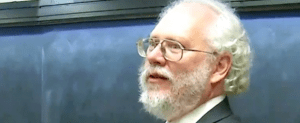 An MIT professor who studies quantum computing is sharing a $3 million Breakthrough Prize. Quantum News Briefs summarizes the article from Boston Globe below.
An MIT professor who studies quantum computing is sharing a $3 million Breakthrough Prize. Quantum News Briefs summarizes the article from Boston Globe below.
MIT math professor Peter Shor shared in the Breakthrough Prize in Fundamental Physics with three other researchers, David Deutsch at the University of Oxford, Charles Bennett at IBM Research, and Gilles Brassard at the University of Montreal. All of them are “pioneers in the field of quantum information,” the prize foundation said in a statement.
The 2023 Breakthrough Prizes are intended to honor fundamental discoveries in life sciences, physics, and math that are changing the world.
“The 2023 laureates have produced absolutely stellar science,” Anne Wojcicki, cofounder and chief executive of 23andMe, who is one of the prize’s founding sponsors, said in the statement. “The creativity, ingenuity and sheer perseverance that went into this work is awe-inspiring.”
According to the foundation, Shor invented “the first quantum computer algorithm that was clearly useful. Shor’s algorithm can find the factors of large numbers exponentially faster than is thought to be possible for any classical algorithm.”“He also designed techniques for error-correction in quantum computers – a much harder feat than in classical computers, where simple redundancy will suffice. These ideas not only paved the way for today’s fast-developing quantum computers; they are now also at the frontiers of fundamental physics,” the foundation said.
*****
Sandra K. Helsel, Ph.D. has been researching and reporting on frontier technologies since 1990. She has her Ph.D. from the University of Arizona.
Categories:
quantum computing
 The National Research Foundation of South Korea (NRF) has awarded two professors from the University of Chicago’s Pritzker School of Molecular Engineering (PME) $1 million to co-lead the creation of a South Korea-U.S. joint research center dedicated to quantum error correction. Quantum News Briefs summarizes the announcement here.
The National Research Foundation of South Korea (NRF) has awarded two professors from the University of Chicago’s Pritzker School of Molecular Engineering (PME) $1 million to co-lead the creation of a South Korea-U.S. joint research center dedicated to quantum error correction. Quantum News Briefs summarizes the announcement here. An MIT professor who studies quantum computing is sharing a $3 million Breakthrough Prize. Quantum News Briefs summarizes the article from Boston Globe below.
An MIT professor who studies quantum computing is sharing a $3 million Breakthrough Prize. Quantum News Briefs summarizes the article from Boston Globe below.






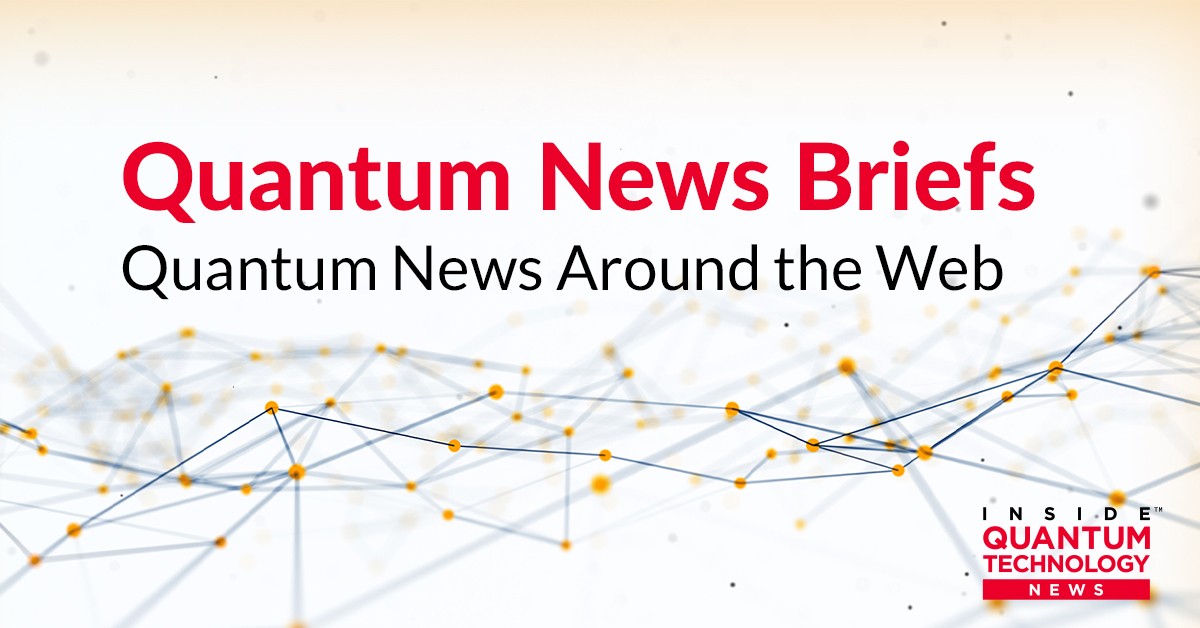
 Andersen Cheng was a September 24 guest contributor to
Andersen Cheng was a September 24 guest contributor to  Greta Lichtenbaum and David J. Ribner of
Greta Lichtenbaum and David J. Ribner of 












